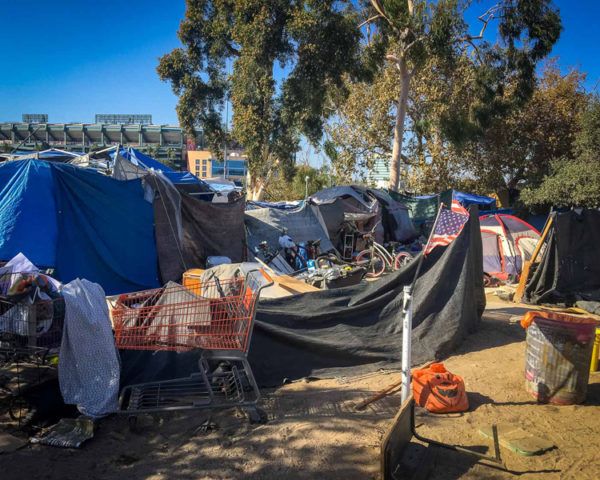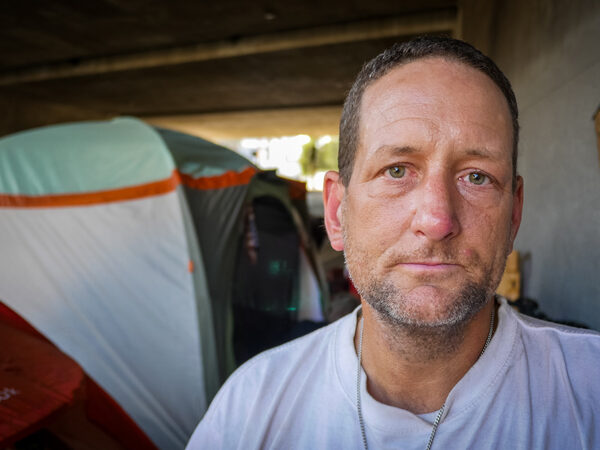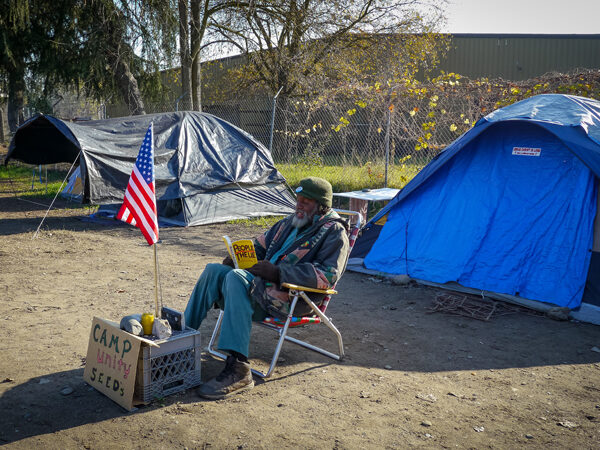
Tent Encampments
Who Lives in Tent Cities?
Due to a lack of affordable housing and high costs of living, many people become homeless. Most cities have emergency shelters, but many do not have enough beds for every person who is homeless. Some people turn to tent encampments—or tent cities—places where groups of people live in tents or other temporary structures. Some tent encampments are informal; others are sanctioned by local governments and supported by social service organizations.
There are numerous documented tent encampments across the U.S., including Seattle, WA, Northern VA, and San Francisco, CA. There are also many other tent cities in America that prefer to stay hidden for fear of eviction.
The way governments and communities respond to tent cities varies. In Seattle, the city sanctions and permits the encampments. In other places, “sweeps” and closures of encampments by local authorities evict people and force them to leave behind their tents and belongings—often without anywhere else to go. In light of the COVID-19 pandemic, the Centers for Disease Control and Prevention has recommended halting these “sweeps.” Some cities are sanctioning tent encampments and using them as a way of providing safe, social distanced sleeping arrangements in the time of COVID-19. The site will be monitored, and hygiene facilities and meals will be provided.










